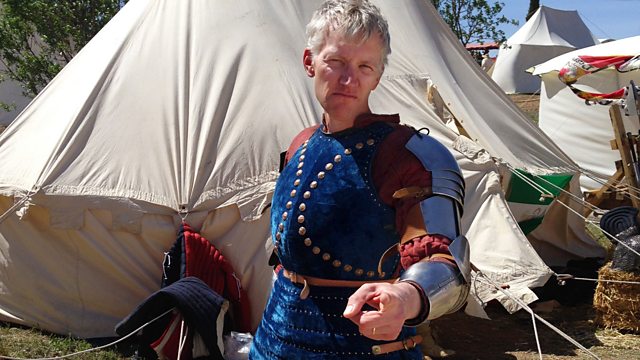The Dunkirk Spirit
New films look back to a famous retreat and a leader that turned the tide of war, but is it time to start re-evaluating what happened at Dunkirk and Churchill's role in WWII?
Tom Holland is joined by Dr Dan Todman from Queen Mary University, London and Professor Lucy Robinson at the University of Sussex.
Britain's retreat from Dunkirk in 1940 was a precursor to the fall of France and a summer in which it looked like Britain too would be be overwhelmed by the Nazi war machine. The evacuation of thousands of troops from the beaches of Northern France in an armada of boats of all shapes and sizes has been spun into a defining moment when the plucky Brits snatched victory from the jaws of defeat. But Dunkirk was a disaster. So why don't we remember it as one? As a new film explores this moment of history, we explore the "Dunkirk spirit" and whether it really existed.
Helen Castor is in Norwich which, it was once said, had a pub for every day of the year and a church for every Sunday. In the Middle Ages, it also seemed to be teeming with anchoresses, anchorites and hermits - people who, with the blessing of the church, withdrew from everyday life but were still on hand to dish out advice to those who wanted it. How important were these people in medieval society and why are we less comfortable with loners and recluses today? Helen is joined at St Julian's in Norwich by Professor Carole Rawcliffe and Dr Tom Licence from the University of East Anglia.
There are archaeological artefacts from all eras. In Gainsborough, Lincolnshire, it is the sweet-wrappers, marbles and toy figures discarded by children in the 1950s and 60s that are adding to our knowledge of the past. In a housing estate that was designed by planners influenced by American ideas from the 1920's, a team from the University of Lincoln is working with the local community to see whether ideas about encouraging play in British housing estates really worked.
Producer: Nick Patrick
A Pier production for ����ý Radio 4.
Last on
More episodes
Previous
Guests
A High-Rise History
In the wake of the calamitous fire in Grenfell Tower in west London, Dr Jane Hamlett at Royal Holloway University of London explains the history of the high-rise in the UK
��
��
��
��
��
��
��
The Middlefield Estate, Gainsborough
Can we show that housing estates that were designed to encourage children to play actually did so? That’s the question that a team from the University of Lincoln are trying to prove. Led by Professor Carenza Lewis the local community has come together to dig test pits to see how many artefacts relating to play they could find. The diggers found four times as many toys, sweet wrappers… etc… expected in a comparable village location. The place chosen was the Middlefield estate in Gainsborough, Lincolnshire which was built in the 1960’s along the lines of the Radburn model which sought to ensure that cars and children were kept well apart in 1920’s New Jersey.
��
��
��
��
Dunkirk
Christopher Nolan’s ‘Dunkirk’ is due to be released on July 21st. It’s a star-studded, no holds barred account of the evacuation of over 300,000 troops from the beaches of Northern France in 1940. This military disaster was quickly ‘spun’ as a miracle and then mopped in to the ‘Dunkirk spirit’. The author of ‘After Dunkirk’, Saul David joins Dan Todman and Lucy Robinson to discuss how?
��
David, S. (2017) After Dunkirk, Endeavour Press, ISBN13 9781911445340
��
��
��
��
��
Hermits
A town in Austria advertised for a hermit. Odd to modern minds but, as Helen Castor discovered during a trip to St Julians in Norwich, hermits and anchorites were common - and important - characters in medieval society. There she met Professor Carole Rawcliffe and Dr Tom Licence, both from the University of East Anglia.
��
��
��
��
��
��
Licence, T. (2011) Hermits and Recluses in English Society, 950-1250, Oxford University Press, ISBN13��9780199592364
Broadcast
- Tue 27 Jun 2017 15:30����ý Radio 4 FM
Podcast
-
![]()
Making History
Popular history series where the past connects with the present.


